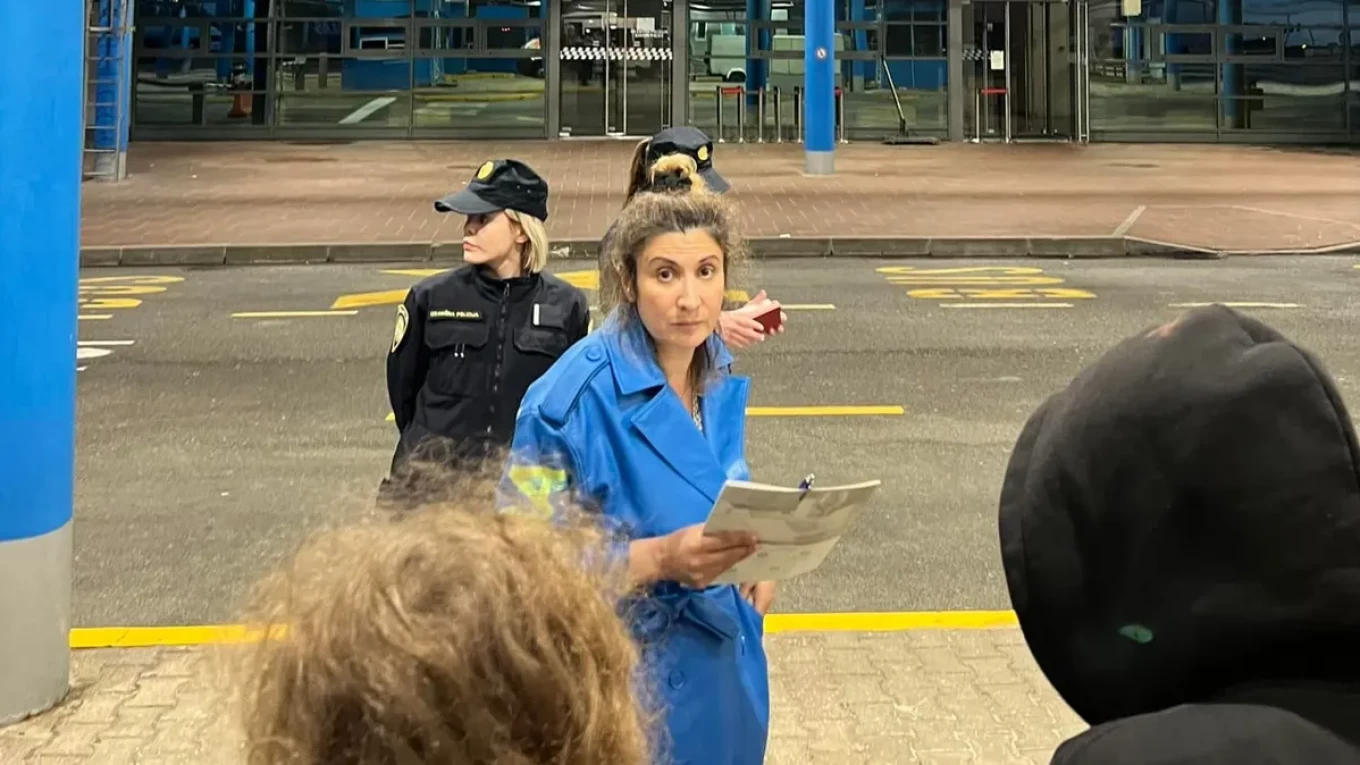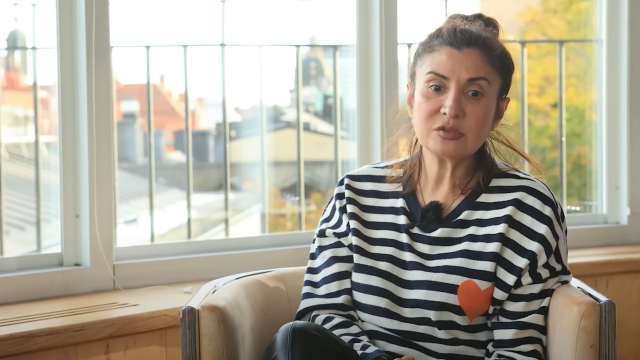Pussy Riot member Aysoltan Niyazova was detained by Polish border guards following a red notice issued by Interpol at Turkmenistan’s request, the anti-Kremlin activist collective said Saturday.
Niyazova, an activist from Turkmenistan, was accused by the country’s authorities of embezzling funds from its Central Bank, with an extradition request first issued in 2002.
Pussy Riot said the charges against Niyazova were fabricated and politically motivated.
“Deportation to Turkmenistan is equal to death for her,” Pussy Riot member Maria Alyokhina told The Moscow Times.
In 2011, Switzerland refused to extradite Niyazova to Turkmenistan but handed her over to Russia, where she spent six years in prison on charges of embezzlement.
Niyazova was reportedly going to Poland from Lithuania to pick up a dog from a shelter there.
Polish authorities this year introduced selective border controls with Germany and Lithuania.
In 2022, Niyazova was also detained in Slovenia and Croatia at Turkmenistan’s request.
Slovenia released her after 10 hours, while Croatia freed her two days later.
Niyazova’s lawyers appealed to Interpol to remove her from the database, arguing that Turkmenistan’s request was unjustified, but the law enforcement organization refused.
Her father Kurbanburad Niyazov supported Turkmenistan’s opposition and died in prison, the exiled news website Novaya Gazeta Europe reported, adding that Niyazova links her own persecution to her opposition views.
According to Novaya Gazeta Europe, Niyazova has also never held Turkmenistan citizenship.
The Central Asian country, a former Soviet republic, is one of the most repressive regimes in the world, according to international human rights organizations.
A Message from The Moscow Times:
Dear readers,
We are facing unprecedented challenges. Russia's Prosecutor General's Office has designated The Moscow Times as an "undesirable" organization, criminalizing our work and putting our staff at risk of prosecution. This follows our earlier unjust labeling as a "foreign agent."
These actions are direct attempts to silence independent journalism in Russia. The authorities claim our work "discredits the decisions of the Russian leadership." We see things differently: we strive to provide accurate, unbiased reporting on Russia.
We, the journalists of The Moscow Times, refuse to be silenced. But to continue our work, we need your help.
Your support, no matter how small, makes a world of difference. If you can, please support us monthly starting from just $2. It's quick to set up, and every contribution makes a significant impact.
By supporting The Moscow Times, you're defending open, independent journalism in the face of repression. Thank you for standing with us.
Remind me later.






